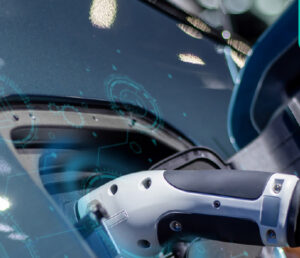World Road Congress: Electromobility is the way to go in the decarbonisation agenda


In the heart of Prague, the World Road Congress 2023 brought together the world’s foremost minds in transportation and infrastructure. This gathering of experts delved into the ever-evolving landscape of mobility and infrastructure. At the forefront of their deliberations were the promise of electromobility, autonomous vehicles and the industry’s resolute stride towards carbon neutrality. Electromobility is igniting a new dawn in Kenya’s transportation landscape, with the nation’s embrace of electric vehicles gaining momentum. This shift in perspective finds its voice in Roads and Transport Cabinet Secretary Kipchumba Murkomen, who in the wake of the Africa Climate Summit, publicly heralded the merits of electric mobility. The Ministry of Roads and Transport endeavours to revolutionise the sector by replacing diesel-powered vehicles with climate-friendly ones to ensure that Kenya remains on track in the decarbonisation climate agenda.
In a world grappling with the environmental repercussions of fossil fuel dependence and the urgent need to reduce greenhouse gas emissions, electromobility has emerged as a beacon of hope for the automotive industry. Among the various solutions available, hybrid vehicles, offering a cleaner path to a sustainable future, have gained significant traction. Electromobility refers to the utilisation of electric power for vehicular transportation, replacing or supplementing traditional internal combustion engines with electric propulsion systems. It encompasses a spectrum of technologies, from fully electric vehicles (EVs) to plug-in hybrids and traditional hybrid vehicles. The primary aim of electromobility is to reduce carbon emissions, decrease our dependence on fossil fuels, and mitigate the environmental impact of transportation.
Hybrid vehicles are a key player in the realm of electromobility. They combine the benefits of traditional gasoline or diesel engines with electric propulsion, resulting in a more efficient and environmentally friendly means of transportation. Hybrid vehicles are becoming increasingly popular due to their numerous advantages:
- Hybrids produce fewer greenhouse gas emissions compared to traditional vehicles. They also reduce air pollution, helping to combat urban smog and promote cleaner air quality.
- Hybrids are renowned for their impressive fuel efficiency, allowing drivers to cover more miles on much less fuel.
- Lower fuel consumption means reduced fuel expenses, making them an attractive choice for budget-conscious consumers.
- Hybrids help reduce our reliance on finite fossil fuel resources. By integrating electric power, they pave the way for a cleaner, sustainable future in the automotive industry.
As the automotive industry continues to embrace electromobility, the development and widespread adoption of hybrid vehicles play a crucial role in the transition to a more sustainable and eco-friendly mode of transportation. Automotive industry players such as CFAO Motors are investing heavily in research and development to enhance the efficiency and affordability of hybrid technology. The rise of hybrid vehicles is a testament to the automotive industry’s commitment to a greener and more sustainable future. As we continue to embrace electromobility, hybrid technology serves as a stepping stone, offering a practical and eco-conscious alternative to traditional internal combustion engines. With ongoing innovation, increased accessibility, and continued government support, the road to a cleaner and more sustainable future is undoubtedly paved with hybrid vehicles.

